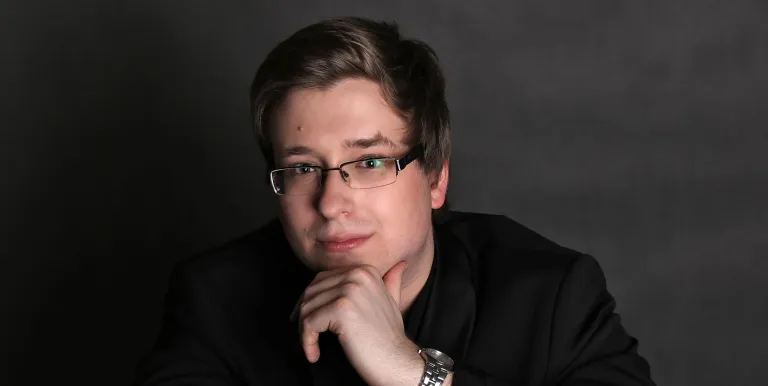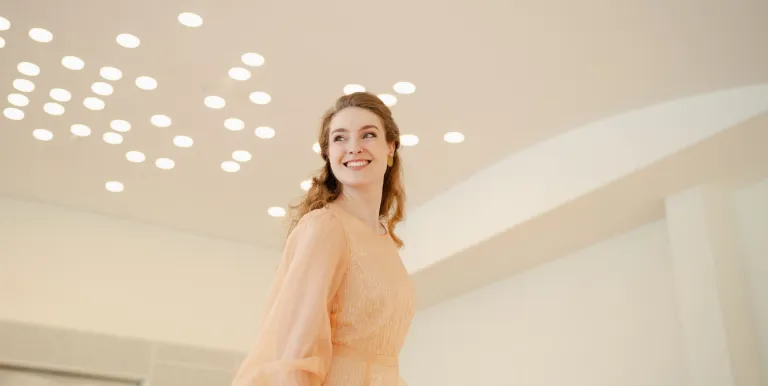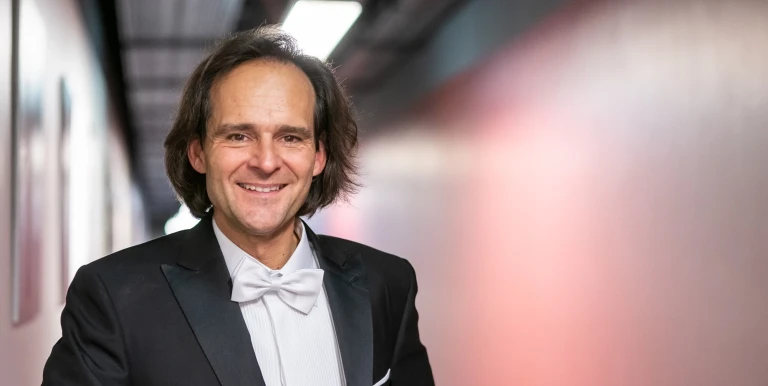one interval
J. S. Bach
Fantasy and Fugue in G minor, BWV 542
Bartók
Divertimento, Sz. 113, BB 118 - second movement (transcribed by Csaba Tasi)
Liszt
"Weinen, Klagen” variations
Duruflé
Suite, op. 5
Ligeti
Two Études for Organ - Harmonies, Coulée
Reger
Introduction and Passacaglia in F minor, op. 63
Csaba Tasi was born in 1991 and commenced his organ studies at Kecskemét's Zoltán Kodály High School of Music under the guidance of László Révész. His teachers at the Academy of Music were László Fassang, János Pálúr, István Ruppert, Balázs Szabó and Ilona Prunyi. Since the age of 22, he has been the permanent organist of the Pasarét Reformed Congregation, in addition to organising and performing its theme-based organ concerts. In addition to all this, he also serves as an organ and harmonium teacher and organ and piano répétiteur for the Dunamellék Reformed Cantor Training Centre.
At his diploma concert, he will employ three hundred years of musical literature in order to demonstrate the organ's versatility and show the important stages in the developmental history of the centuries-long tradition of composing music for the instrument. The first part will be framed by an emblematic work from each of Bach and Liszt that reflects personal tragedies afflicting the two composers in the language of music. The Fantasy and Fugue in G minor originates from Bach's 1720 journey to Hamburg, not long after the death of his first wife, Maria Barbara. Liszt, for his part, composed his variations to Weinen, Klagen, Sorgen, Zagen after losing his eldest daughter, Blandine. The Hungarian composer borrowed the chromatic bass line providing its central theme and the chorale heard at the end of the work from Bach's cantata of the same title.
The works to be played in the second half offer a taste of the various phases of the 20th-century organ tradition. The pieces by Maurice Duruflé and Max Reger reveal the characteristics of the French and German organ schools, respectively. Whereas it is the diversity of harmonies and freedom of form that dominates in the first movement of Dufuflé's suite from 1932, Reger's 1902 piece honours the work of Bach with its strict contrapuntal structure. György Ligeti's two études are a unique splash of colour depicting the innovations in how the organ was treated that appeared in the 1960s, while the transcription of Bartók shows new possibilities in the composer's relationship with the organ.
Presented by: Academy of Music, Müpa Budapest
-
We wish to inform you that in the event that Müpa Budapest's underground garage and outdoor car park are operating at full capacity, it is advisable to plan for increased waiting times when you arrive. In order to avoid this, we recommend that you depart for our events in time, so that you you can find the ideal parking spot quickly and smoothly and arrive for our performance in comfort. The Müpa Budapest underground garage gates will be operated by an automatic number plate recognition system. Parking is free of charge for visitors with tickets to any of our paid performances on that given day. The detailed parking policy of Müpa Budapest is available here.










